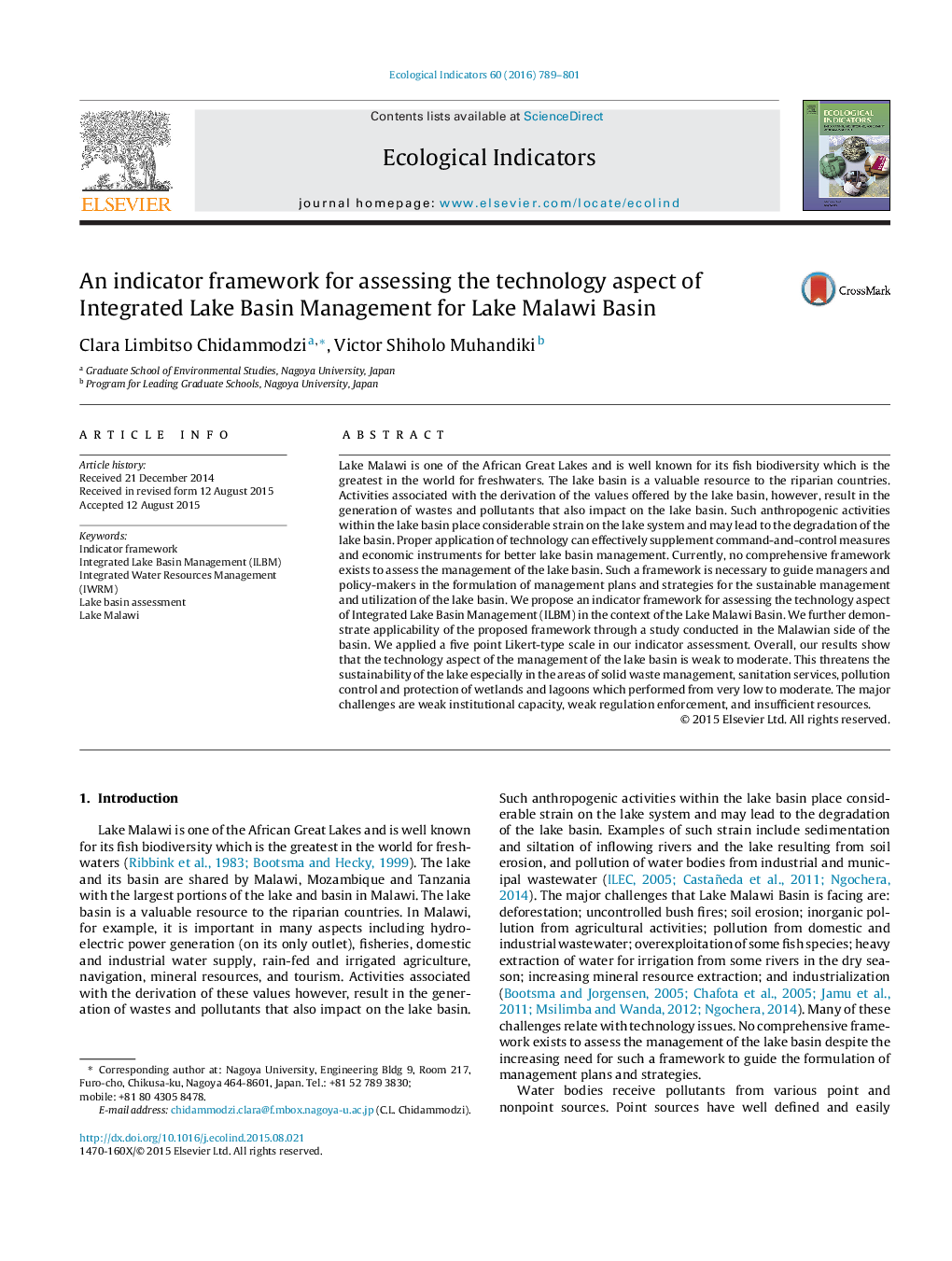| Article ID | Journal | Published Year | Pages | File Type |
|---|---|---|---|---|
| 6294159 | Ecological Indicators | 2016 | 13 Pages |
Abstract
Lake Malawi is one of the African Great Lakes and is well known for its fish biodiversity which is the greatest in the world for freshwaters. The lake basin is a valuable resource to the riparian countries. Activities associated with the derivation of the values offered by the lake basin, however, result in the generation of wastes and pollutants that also impact on the lake basin. Such anthropogenic activities within the lake basin place considerable strain on the lake system and may lead to the degradation of the lake basin. Proper application of technology can effectively supplement command-and-control measures and economic instruments for better lake basin management. Currently, no comprehensive framework exists to assess the management of the lake basin. Such a framework is necessary to guide managers and policy-makers in the formulation of management plans and strategies for the sustainable management and utilization of the lake basin. We propose an indicator framework for assessing the technology aspect of Integrated Lake Basin Management (ILBM) in the context of the Lake Malawi Basin. We further demonstrate applicability of the proposed framework through a study conducted in the Malawian side of the basin. We applied a five point Likert-type scale in our indicator assessment. Overall, our results show that the technology aspect of the management of the lake basin is weak to moderate. This threatens the sustainability of the lake especially in the areas of solid waste management, sanitation services, pollution control and protection of wetlands and lagoons which performed from very low to moderate. The major challenges are weak institutional capacity, weak regulation enforcement, and insufficient resources.
Related Topics
Life Sciences
Agricultural and Biological Sciences
Ecology, Evolution, Behavior and Systematics
Authors
Clara Limbitso Chidammodzi, Victor Shiholo Muhandiki,
